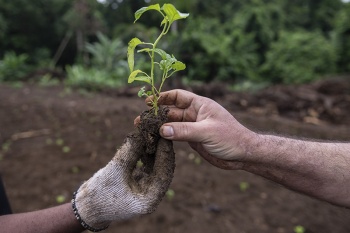The Food and Agriculture Organization of the United Nations (FAO) is revolutionising Massive Open Online Courses (MOOCs) with a new platform increasing interactivity, engagement and completion rates
7 May 2024

To revolutionise Massive Open Online Courses (MOOCs) and enhance access to knowledge worldwide, the Food and Agriculture Organization of the United Nations (FAO) is utilising a new platform to create a series of interactive and engaging online courses. This platform makes online courses more concise and time-efficient, enhancing the overall user experience. It also offers responsive technology, allowing users to access the courses on desktops, tablets and cell phones.
FAO has launched the first two online courses, with plans to launch new courses regularly throughout the year. The new interactive, short course format offers access to relevant knowledge and information regarding FAO’s knowledge-sharing platforms in a concise and engaging manner. These courses help to streamline and optimise course materials, reducing text heaviness for a more accessible and digestible learning experience while implementing design elements that cater to diverse learning styles and preferences.
The first two courses available include:
This course is designed for individuals and institutions interested in learning more about whether they are eligible to utilise Research4Life / AGORA and, if so, how to register and access the high-quality resources. The course is also designed for current Research4Life / AGORA users to learn more about how to search effectively and efficiently in the AGORA content portal.
No registration is required. Interested participants can access the course here:
https://www.fao.org/agora/access-to-global-online-research-in-agriculture/#/
This course is designed for those interested in learning more about accessing and utilising AGRIS. AGRIS is one of the most comprehensive search engines in food and agricultural scientific literature, providing free access to millions of bibliographic records in more than 100 different languages.
No registration is required. Interested participants can access the course here: https://www.fao.org/agris/the-international-system-for-agricultural-science-and-technology/#/
For any questions regarding the new online courses, users can contact [email protected]. To stay current on new, relevant courses available through the platform, please subscribe to the aims DGroup here: https://dgroups.org/fao/aims_news.
More about Access to Global Online Research in Agriculture (AGORA)
Since 2003, FAO has led the Access to Global Online Research in Agriculture (AGORA) programme, which provides access to thousands of journals, e-books, and other information resources covering agriculture, fisheries, food, nutrition, veterinary science and related biological, environmental and social sciences in public institutions across the world. The aim of the programme is to improve the quality and effectiveness of agricultural research, education and training in low-income countries. AGORA is one of the five programmes that make up Research4Life.
More about AGRIS, the International System for Agricultural Science and Technology
AGRIS is one of the most comprehensive food and agricultural scientific literature databases worldwide and is also an international network of data providers that volunteers information (metadata) about food and agricultural science publications, including publishers, governments and research organisations. Accessible through a user-friendly search interface, AGRIS offers millions of bibliographic records in more than 100 languages available for free to global users. These records are provided in multilingual formats and frequently include full-text links to connect users to scientific literature worldwide.


